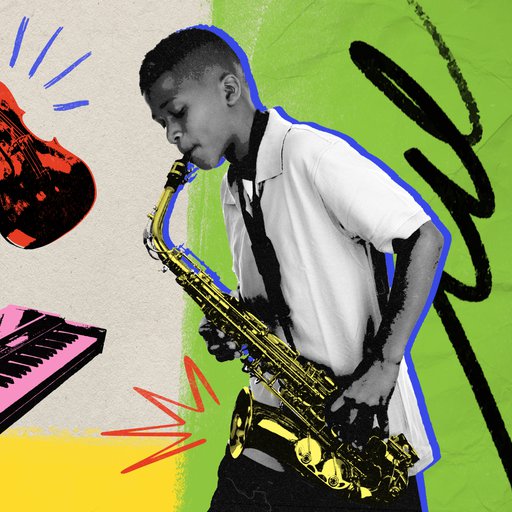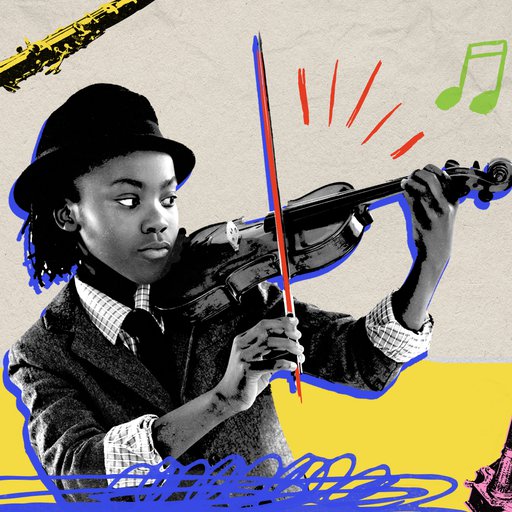
The CBC Music Class Challenge, powered by MusiCounts, returns this spring with a brand new focus on new Canadian music and student creativity. This cycle invites classes from across Canada to participate in one of two ways: by performing a newly commissioned Canadian choral work, or by creating and submitting an original class-written song.
How it Works
The process for submitting to the Challenge is different this year. Please read this carefully.
Step 1: Register for the Music Class Challenge via Registration Form.
All schools and community organizations who intend to enter the challenge must complete the Registration Form prior to submitting. You are encouraged to register as early as possible.
Step 2: Prepare
- Choose a pathway: will your class learn the new choral work, or create an original song?
- Determine your Category: Review the categories below and determine which category will make the most sense for you to submit to.
- Create, Practice & Perform: Spend time learning the commissioned work or developing your original song.
- Record: Film your class performing their final piece.
Step 3: Submit your entry to the Music Class Challenge via this Submission Form.
If your school or organization is submitting multiple performances, you must submit multiple Submission Forms
January 13
Registration & Submissions Open

April 9
Submission Deadline

May 29
Winners Announced

About the Spring Cycle
The spring edition of the Class Challenge offers a fresh opportunity for students to engage meaningfully with new Canadian repertoire and the creative process.
Option 1: Perform mitêh (Heart) — A New Canadian Choral Commission
This year’s commissioned work, mitêh (Heart) by Cree-Dene composer Sherryl Sewepagaham, invites students to explore a new Canadian choral piece written in Plains Cree. The score is modular, flexible, and accessible, with multiple versions to support a wide range of classroom contexts.
- Free arrangements for SATB, SA, and Unison choir; perform whichever version is best-aligned with the level of your choir
- While this piece is fully suitable for acapella performance, there is an optional Orff accompaniment, as well as chord markings to support student- or teacher-created instrumental accompaniment, if desired.
Download all score versions HERE on the MusiCounts website.
Option 2: Create an Original Song
For the first time, the spring cycle includes categories for original class-written songs. These submissions give students the opportunity to collaborate as composers, lyricists, arrangers, and performers.
Songs may be in any style or genre, use any configuration of voices and instruments, and may be performed live or produced using a simple DAW such as BandLab or Soundtrap.
Original Song Requirements:
- Must include original lyrics (instrumental-only works are ineligible)
- Minimum of five students must be meaningfully involved
- Length: 1–4 minutes
- An adult accompanist may support elementary submissions (non-featured role only)
Categories
All music programs in Canada are welcome to participate, and classes should enter the category that best aligns with their grade range of the majority of participating students:
- Category 1: mitêh Performance - Elementary (Kindergarten–Grade 4)
- Category 2: mitêh Performance - Intermediate (Grades 5–8)
- Category 3: mitêh Performance - Senior (Grades 9–12)
- Category 4: Original Song - Elementary (Kindergarten–Grade 4)
- Category 5: Original Song - Intermediate (Grades 5–8)
- Category 6: Original Song - Senior (Grades 9–12)
Prizes
- First-place winners in each of the six categories will receive a gold record Award Plaque, and $2,000 in new musical instruments from MusiCounts
- Second and third place winners will receive Plaques.
- One Plaque will also be awarded to an outstanding submission from a Tuition-Based Program.
Rules & Eligibility
- All music programs in Canada are invited to participate and should select the category that best aligns with their students. However, only public schools and registered charities that do not charge more than $200 per year for youth to participate in their program are eligible to be shortlisted in the top 10 and receive first-place prizes. Programs that do not meet this criteria—including private schools and tuition-based organizations—are still welcome to participate and may be eligible for the Tuition-Based Program Award Plaque, which recognizes outstanding submissions from programs with higher participant fees.
- To ensure more schools benefit from MusiCounts grants, any school that wins a first-place financial award becomes ineligible for first-place prizes for the following three years. These schools are still encouraged to participate, can be shortlisted, and remain eligible for second and third place awards.
- For more information, please see CBC’s Rules & Regulations for this program.

Singing In Indigenous Languages: A Practical Guide For Educators
With practical activities, discussion prompts, and repertoire suggestions, this resource is designed to be a starting point for teachers, librarians, and community educators who wish to integrate Indigenous languages into music programs in a way that honours Indigenous ways of knowing and cultural practices in a respectful manner.
